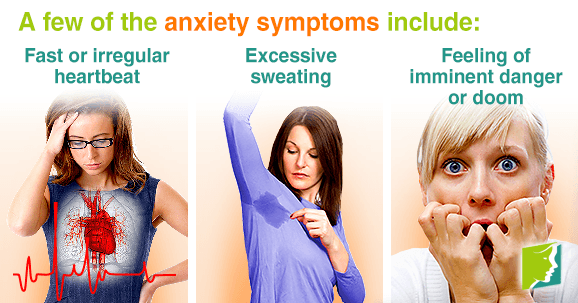Anxiety as a response to immediate danger is a survival instinct - it allows people to focus their attention on a problem and consider how to solve it. However, in modern society this instinct can lead sufferers of clinical anxiety to feel substantial distress even when there is no apparent cause - at this point, the anxiety has reached the point of being categorized as a psychological disorder. Some people even find that their anxiety leads to anxiety attacks, which can vary in intensity and frequency. Keep reading to find out more about anxiety attacks and the possible reasons for them.
What Are Anxiety Attacks?
Anxiety attacks are characterized by the sudden sense of intense fear, and usually last up to a few minutes in duration. The symptoms are similar to a heart attack or a breathing disorder, so they can be very distressing. A few possible symptoms include:
- Fast or irregular heartbeat
- Excessive sweating
- Feeling of imminent danger or doom
Why Do They Occur?
There are many reasons for anxiety attacks, and these often work in tandem, although they can work alone. A few of the possible triggers that have been identified are listed below.
Genetics
Research has shown that some people are more genetically vulnerable to developing anxiety attacks than others. If a close relative suffers from anxiety attacks, then the likelihood is increased that you will too. However, this is not inevitable, and it does not mean that nothing can be done to reduce or stop the attacks. Nevertheless, those with a family history of anxiety attacks should be far more vigilant in learning coping strategies and leading a lifestyle that will keep the attacks at bay.
Stress
Chronic stress is a common cause of anxiety attacks. Coping mechanisms with regards to stress differ from person to person, and these seem to have some effect on the development of anxiety disorders. Healthy coping strategies - such as relaxation exercises, physical activity, and a balanced diet - all reduce the chances of stress causing anxiety attacks.
Life experiences
All life experiences shape a person, so if a person has grown up seeing their parents react negatively to stress, has been bullied, or has had negative social interactions, these can all lead to anxiety of varying degrees, and possibly anxiety attacks. Talk therapy can often assist with this, as it can help people identify the origin of their anxiety. Dealing with the problem becomes much easier after that.
The causes of anxiety attacks are complex and often interact with one another. This article discusses some of the known causes for anxiety, but there are many more. If you find yourself suffering from anxiety attacks, it is important to seek medical advice. A doctor will be able to recommend appropriate therapies and treatments. Anxiety is treatable and does not have to impact on your life.
Sources
- National Health Service UK. (2014). Generalised anxiety disorder. Retrieved September 2, 2014, from http://www.nhs.uk/conditions/anxiety/pages/introduction.aspx
- National Institutes of Health. (2014). Anxiety. Retrieved September 2, 2014, from http://www.nlm.nih.gov/medlineplus/anxiety.html




